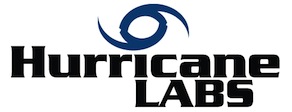—< NORTHEAST OHIO INFORMATION SECURITY FORUM MEETING
—< Wednesday April 20, 2016
—< 6:30 PM – 8:00 PM
—< Pizza and social start 6:00 PM
—< Location: OEC at 4205 Highlander Pkwy Richfield, OH 44286
—< Open to everyone and free as always
The Northeast Ohio Information Security Forum will hold our monthly meeting at the above date and time.
Agenda:
Advanced Operating Systems & Their Offspring
by Nathaniel Alcock
The free descendants of Unix have developed a number of interesting technologies. OpenSSH, LibreSSL, Bhyve, Jails, Zones, ZFS, and DTrace are just a few of the tools forged in BSD and Illumos.
Nathaniel will provide a quick overview of what these communities. Spending time talking about what these tools are, and how they canbe used outside of the systems they were designed in (ZFS in Linux, DTrace on Mac, etc.).
Nathaniel’s BIO:
Nathaniel Alcock is a web developer in Cleveland, Ohio. New to the area and NEOSIF, you can spot him talking functional programming, security, and weird tech.
Your Logs Are Talking… But Are You Listening?
by Mick Douglas from Binary Defense
Many folks don’t realize what a wealth of information log sources can be. Learn some tricks to quickly squeeze maximum value out of your best kept secrets… your logs!
Don’t Forget to Lock the Back Door!
A Characterization of IPv6 Network SecurityPolicy
by: Mark Allman
There is growing operational awareness of the challenges in securely operating IPv6 networks. Through a measurement study of 520,000 dual-stack servers and 25,000 dual-stack routers, we examine the extent to which security policy codified in IPv4 has also been deployed in IPv6. We find several high-value target applications with a comparatively open security policy in IPv6 including: (i) SSH, Telnet, SNMP, are more than twice as open in IPv6 as they are in IPv4, (ii) nearly half of routers with BGP open, were only open in IPv6, (iii) in the server dataset, SMB was twice as open in IPv6 as in IPv4. We conduct a detailed study of where port blocking policy is being applied and find that protocol openness discrepancies are consistent within network boundaries, suggesting a systemic failure in organizations to deploy consistent security policy. We successfully communicate our findings with ten different network operators and all ten confirm that the relative openness was unintentional. Eight of the ten immediately deployed a congruent IPv6 security policy, reflecting real operational concern. Finally, we revisit the belief that the security impact of this comparative openness in IPv6 is mitigated by the infeasibility of IPv6 network-wide scanning\textemdash we find that, for both of our datasets, host addressing practices make discovering these high-value hosts feasible by scanning alone. To help operators accurately measure their own IPv6 security posture, we make our scanning system publicly available.
Mark’s Bio:
Mark Allman is a senior scientist with the International Computer Science Institute (ICSI) and adjunct faculty in EECS at Case Western Reserve University. His current research work is in the areas network architecture, security, transport protocols, congestion control and network measurement. Prior to his appointment at ICSI, he conducted research on internetworking in satellite networks for BBN Technologies at NASA’s Glenn Research Center. His professional activities include chairing and serving on numerous conference steering and program committees, as well as numerous leadership roles within the Internet Engineering Task Force. He is a member of the ACM and holds B.S. and M.S. degrees in computer science from Ohio University.
Don’t forget to come early, starting at 6:00 PM, for food and soda, sponsored by TrustedSec.
Another great meeting from NEO Info Sec Forum – we hope to see you there!
– NEOISF Board –






